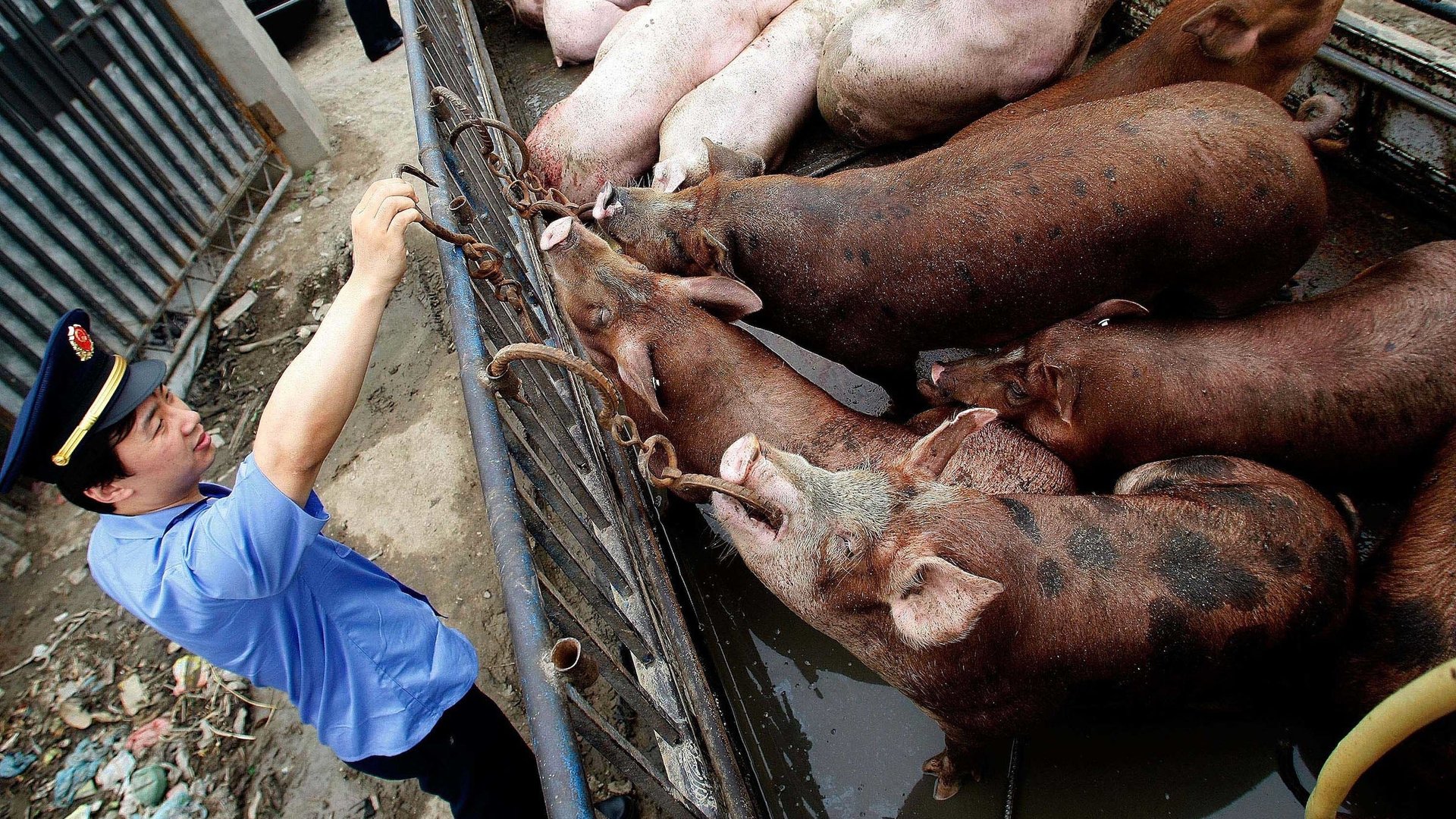The bank that specializes in rescuing Chinese firms from the glare of publicity
China Development Bank is a lender that goes where others may fear to tread. In the last few months, this Beijing government-owned lender has stepped up to finance management buyouts of several US-listed Chinese companies that were accused of accounting irregularities by short sellers or enterprising Chinese media. The latest such deal has just been announced: Zhongpin, a Chinese pork processor (known by its Nasdaq stock symbol, HOGS), said it was being taken off the stock market by its chairman, supported by a $320 million loan from CDB. The Chinese lender has set aside $1 billion to finance such “take-privates.”


China Development Bank is a lender that goes where others may fear to tread. In the last few months, this Beijing government-owned lender has stepped up to finance management buyouts of several US-listed Chinese companies that were accused of accounting irregularities by short sellers or enterprising Chinese media. The latest such deal has just been announced: Zhongpin, a Chinese pork processor (known by its Nasdaq stock symbol, HOGS), said it was being taken off the stock market by its chairman, supported by a $320 million loan from CDB. The Chinese lender has set aside $1 billion to finance such “take-privates.”
Like many of its peers, Zhongpin’s brief life as a US public company has been a troubled one. Last July, Hong Kong monthly magazine China Economic Review alleged that Zhongpin was overstating revenues. The company strongly denied this. (A spokesman for Zhongpin did not return an email from Quartz seeking comment by press time.) Dozens of US-traded Chinese companies have faced similar accusations. The US Securities and Exchange Commission has had its eyes trained on the sector for over two years. American investors have lost billions of dollars from de-listings or stock price slumps as Chinese companies, even those believed to be honest, fell deeply out of favor.
The trouble is that there is no way for ordinary investors (or even most extraordinary ones) to know whether the allegations about these companies are true, or a stitch-up. Chinese companies with US shareholders are easy targets for short sellers. Their businesses are thousands of miles away. The accounts they file with the Chinese government, which short sellers often claim do not match their SEC filings, are in Chinese and only lawyers licensed in China can access them. A cottage industry of short sellers, the most famous of whom is probably Muddy Waters’ Carson Block, make money from betting that a Chinese firm’s share price will fall just before releasing research alleging that the company is cooking the books.
It would be little wonder, then, if the Beijing government, through CDB, wanted an end to a story that consistently links Chinese industry with allegations of this type. According to Chinese magazine Caixin, 36 US-traded Chinese companies have announced plans to go private and go home since October 2009. Other management-led buyouts CDB is supporting include Fushi Copperweld, a Beijing based wire maker that plans to go private next month. Fushi announced in June it had backing from CDB for the deal. Muddy Waters raised questions about Fushi’s accounting in April, which the wire maker denied. A third company that went through the process was Harbin Electric, a US-listed Chinese car maker that was accused of various irregularities, denied them, and then went private financed by CDB.
CDB’s lending policy tells us either that the China-focused short sellers are wrong, or that the Beijing government would rather no-one found out they were right. The lack of transparency from Beijing, however, means no-one knows which is which. US regulators have tried desperately to investigate Chinese companies and their accounting firms. But the Beijing government has consistently blocked access, often citing a Chinese law that the books and records of domestic companies are a state secret.
The bottom line is that Chinese companies probably should be considered too risky for American retail investors. Short sellers out for a quick profit can make claims against Chinese firms that the average private investor does not have the means to check. And the American regulators whose job it is to protect the investing public are not being permitted to do their work. Whether or not its lending is commercially viable, by removing scandal-plagued Chinese firms from American stock markets, CDB is probably doing the right thing. But it would be much better if its actions were accompanied by thorough, public investigations of whether the short sellers were right or wrong. Without such transparency, it is questionable whether Chinese companies should be allowed the cachet of a New York ticker.